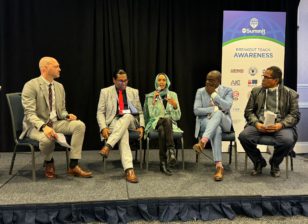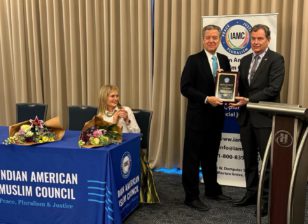IAMC Calls on Rutgers University to Include Caste as a Protected Category
Washington, D.C. (November 26, 2024) – The Indian American Muslim Council calls on the Rutgers University administration to accept the recommendations of the school’s Caste Task Force report and make caste a protected category in official policy. The task force’s demand for additional protection for caste-oppressed students and faculty comes in response to findings indicating that caste discrimination negatively impacts university community members, impeding their educational experience and harming social bonds.
IAMC unequivocally supports all four of the Caste Task Force demands, which are: 1) Rutgers should add caste as a protected category to its nondiscrimination policy. 2.) Rutgers should advertise its current policy and future changes to all university community members. 3.) Wide-ranging educational opportunities are needed to create awareness and change regarding caste. 4.) Rutgers should collect further data on caste-based discrimination on campus.
These measures enjoy broad support from the university community, with the full-time faculty union, the graduate student union, and the university senate all endorsing the Caste Task Force Recommendations. The recommendations also have broad support on the Caste Task Force itself, with 3 of the 4 recommendations passing unanimously and one passing with a ¾ majority.
“Caste discrimination is not acceptable in any form,” said IAMC Executive Director Rasheed Ahmed. “Rutgers University has an opportunity to send a strong message of support to its community members from caste-oppressed backgrounds. Making caste a protected category will help bring to light an issue that is too often kept in the shadows.”
Fourteen other university systems have already added caste as a protected category to their existing legislation. Legal scholars cited in the report argue that existing discrimination legislation routinely fails to capture the particularities of caste discrimination.
The testimony of one Dalit (or caste-oppressed) student cited in the Rutgers report attests to the gravity of the issue, writing, “Every single Punjabi or Indian I meet they somehow ask you what caste you belong to. I try my best to hide it. Either I say ‘I don’t know’ or I just try to say something else… I always feel afraid to tell this to Indians because every time they find this out, they started treating me differently.”
“Though Hindu nationalists frequently attempt to frame caste discrimination protections as ‘anti-Hindu’, the Rutgers report clearly demonstrates that the issue plagues many different religious communities and groups around the world,” said IAMC president Mohammad Jawad. “The Rutgers Administration should not let such disingenuous criticism distract from the importance of implementing caste discrimination protections.”




